High Purity Chemicals

Tokyo Ohka Kogyo's foundation is based on high purity chemicals. Our inorganic/organic high purity chemicals, which are essential basic materials for society, are commercialized under strict quality control and used in various industrial fields and applications, including chemistry, electronics, cosmetics, pharmaceuticals, and reagents.
Sodium Hydroxide
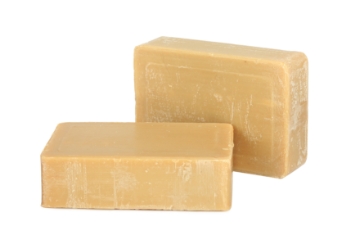
Sodium hydroxide is obtained by electrolysis of sodium chloride. Our product is made by concentrating the raw sodium hydroxide solution obtained by electrolysis and granulating it in a granulator. The appearance is completely white and the content is over 97%. It is also hygroscopic and carbon dioxide absorbent. In 100g of water, it dissolves 42g at 0℃, 108g at 20℃, and 342g at 100℃. A large amount of heat is generated when dissolving in water, and particular care should be taken when using warm water above 50℃. The water solution is strongly alkaline and will attack the skin and animal fibres and react with light metals. It is soluble in alcohols, ammonia, ether and water.
Features
This is a hemispherical white powder with a diameter of 3~4mm, which is kept at a high purity and stable quality standard by strict quality control. This product is suitable for use as an analytical reagent as well as an electronic industrial material, and is also HALAL and Kosher compliant.
Applications
For the Generation of Hydrogen and Oxygen
To give conductivity to the electrolysis of water, a solution of sodium hydroxide (20%) is added to the electrolyte to produce water on the cathode and oxygen on the anode, giving pure water and oxygen. Sodium hydroxide is also used in conjunction with aluminum alloy to generate water vapor in water generators.
For Making Soap
The soaps used in detergents are alkaline soaps, and sodium hydroxide is used to saponify the fatty acids present in the oils and fats used to make the soaps. Our products are suitable for use in the production of black marble soaps due to their high purity and consistent quality standards.
Raw Materials for Higher Purity Chemicals
Our products are widely used as raw materials for the production of altitude sodium silicate, sodium hypochlorite, sodium bitartrate, sodium acetate and other altitude sodium salts.
For Analytical Reagents
Our reagents are manufactured under strict quality control to maintain a stable quality standard. They are widely used as an analytical reagents and as high purity chemicals for research purposes.
For Regeneration of Ion Exchange Resins
Anion exchange resins can be regenerated using 4~10% sodium hydroxide solution, and our products are suitable for this purpose due to their high purity.
Other Applications
Our products can also be used as absorbents and removers for CO2, H2S, and other gases in gas refining, oil refining, rubber regeneration, general neutralization and many other intermediates.
Potassium Hydroxide
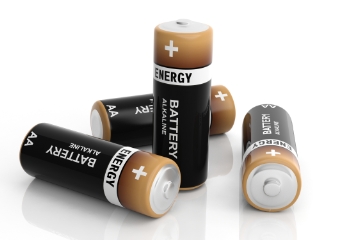
Potassium hydroxide is obtained by electrolysis of potassium chloride. Our product is made by concentrating the potassium hydroxide solution obtained from electrolysis and granulating it in a granulator. It is more hygroscopic and absorbs carbon dioxide more powerfully than sodium hydroxide.
In 100g of water, it dissolves 97g at 0℃, 178g at 100℃, and 213g at 120℃. When dissolving in water, a large amount of heat is generated and boiling occurs, which may cause the liquid to be strongly dispersed, so care must be taken. It is soluble in alcohols, ammonia, ether, etc. as well as water.
The aqueous solution displays strong alkalinity and attacks the skin and animal fibers. Although it can also be used to cover vegetable fibers, it is much more resistant to corrosion than the former. It is practically not corrosive for iron, but will corrode aluminum, tin, zinc, lead and alloy of these metals. It will not corrode rubber at room temperature, and synthetic resins are generally stable and resistant to corrosion.
Features
This is a hemispherical white powder with a diameter of 3~4mm, and is kept at a high purity and stable quality standard through strict quality control. This product is suitable for use in electronics and industrial chemicals, as well as for analysis and research, and is also HALAL and Kosher compliant.
Applications
For Alkaline Batteries
Potassium hydroxide is used as an electrolyte in alkaline batteries widely used for underground safety lights, ships, electric cars, and carriages. The electrolyte must be free of impurities to ensure a long battery life, and our products maintain stable, high-purity quality standards, making them ideal for alkaline batteries.
High Purity Chemical Raw Materials
Our products are used for the production of potassium silicate, potassium iodide, potassium permanganate, potassium carbonate, potassium bicarbonate, other high purity potassium salts, potassium acetate, potassium oxalate, other organic potassium salts, as well as the production of terephthalic acid, an organic industrial chemical, and the synthesis of indigo, a dye. These products are used in a wide range of applications.
For Use as a Raw Material for Cosmetics Such as Soap and Cosmetic Cream Production
Potassium hydroxide is used to saponify the fatty acids that are present in the oils and fats used to make soaps. Our products are carefully controlled to maintain high purity and consistent quality standards, making them ideal for use in the production of soaps, cosmetic creams, and as a pH adjuster for cosmetics.
For Plating
Our products are used in the manufacture of potassium metal salts for plating, such as potassium cyanide and potassium metal cyanide, as well as in the composition of plating baths.
For Analysis and Research
This product is widely used as an analytical reagent and for research purposes as it maintains stable quality standards under strict quality control.
Benzyl Alcohol
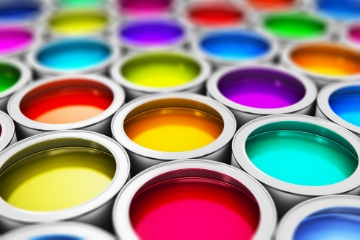
Benzyl alcohol is the simplest aromatic alcohol that has been traditionally used in spices, pharmaceuticals, solvents, etc. It is a colorless, transparent, relatively stable liquid with a weak aroma, is not toxic, and is not harmful. It is neutral, has a burning taste, and is converted to uric acid in the body. It is slightly soluble in water (about 4%), miscible with ethyl alcohol, ethyl ether and chloroform.
It naturally occurs as a free alcohol or ester in many essential oils. For example, it is present in the free state in ylang-ylang oil, tuberose oil, acacia flower essential oil etc., as acetic acid ester in ylang-ylang oil, jasmine oil etc., as a benzoic acid ester in ylang-ylang oil, tuberose oil, Peru and Tolu balsam, and as a silicic acid ester in balsams.
It is produced from benzyl chloride by hydrolysis, benzyl acetate by hydrolysis, or benzaldehyde by Cannizzaro reaction, and purified by distillation.
Physical Properties
| Boiling Point | 204.7°C |
|---|---|
| Freezing Point | -15.1°C |
| Specific Gravity | d2041.05 |
| Vapor Density | 3.7(Air = 1) |
| Refractive Index | n20D1.5396 |
| Flash Point | 102°C |
| Ignition Point | 436°C |
| Viscosity | 5.58 mPa・s(20°C) |
| Surface Tension | 0.0003971 N/cm |
| Dielectric Constant | 13.0(20°C) |
| Specific Heat | 0.5402 cal/g・deg |
| Heat of Combustion | 893 kcal/mol |
| Electric Conductivity | 18×10-7υ/cm(25°C) |
| Vapor Pressure | 66.6kPa(189°C) 53.3kPa(183°C) 26.7kPa(160°C) 13.3kPa(141°C) 2.7kPa(105.8°C) 1.3kPa(93°C) 0.7kPa(80.8°C) 0.1kPa(58°C) |
| Critical Temperature | 403°C |
| Critical Pressure | 45.0 atm |
| Solubility Parameter | 12.1 |
| Solubility in 100g of Water | 4.43g(25°C),4.79g(40°C) 5.47g(60°C),6.45g(80°C) 7.15g(90°C) |
| Expansion Rate | 0.00075 /deg |
Applications
It is used in industrial applications as an auxiliary solvent for paints to increase the weather resistance, heat resistance and gloss of lacquers. It is also used as an ink solvent in ballpoint pens and stamp inks. As a dye agent, it is used to color hydrophobic fibers that are difficult to dye, such as polyester and acrylic fibers. It is also used for dyeing high grade wool, coloring plastics and improving the penetration of hair dye cosmetics.
It is used as a PVC stabilizer and as a synthetic raw material for pharmaceutical intermediates.
It is also used as an auxiliary solvent in metal cleaning and paint stripping agents.
Ohka Seal
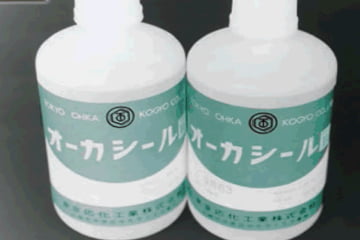
Ohka Seal is a potassium silicate aqueous solution produced specifically for cathode-ray tubes. It is chemically high-purity for industrial use and contains no copper, nickel, or other metals harmful to photoreceptors. There are two methods of production: a dry method by melting silica sand with potassium carbonate or caustic potassium, and a wet method by reaction of silicic acid with caustic potassium solution, both of which require a high degree of purification of the silica acid and silica sand to obtain high purity. Products can be produced with a range of 1~4 molar ratios. The smaller the molar ratio, the higher the concentration can be obtained. Since this product has strong adhesion to glass and can damage soft glass, it should be stored in a sealed polyethylene container.
Physical Properties
It is a transparent, odorless, alkaline solution with a molar proportion (SiO₂/K₂O) of 3~4. It is manufactured as an industrial chemical and is ideal as a raw material for high purity anhydrous silicic acid due to its minimal impurities.
Applications
For Cathode Ray Tube Fluorescent Film Production
For this application, barium acetate solution is used as an electrolytic agent and added into a cathode-ray tube valve that has been thoroughly cleaned with dichromic acid mixture, ammonium fluoride, etc., and the mixture of phosphor and Orcaseal in poured from the liquid surface through a spreader.
After standing for 10~15min, the tube is gently tilt to remove the supernatant liquid and dried to obtain a fluorescent surface.
For the Manufacture of Catalyst Carriers
Silica gel can be used as a catalyst support when Ohka Seal is gelatinized under specific conditions.
It is used as a catalyst for the production of phthalic anhydride.
For Production of High Purity Silica
When strong acid is reacted with Ohka Seal, it becomes gelatinous. After purification, it is calcined and ground to produce high purity silica powder. This product is suitable for the production of photovoltaics and other industrial processes.
Polishing Agent for Semiconductors
This product is suitable as a polishing agent for IC and LSI wafers.
Potassium Carbonate
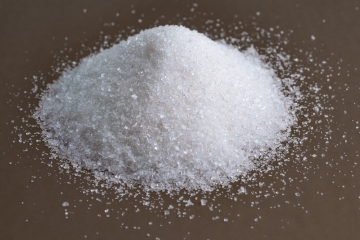
Our potassium carbonate is produced from high purity potassium hydroxide and high quality carbon dioxide gas.
Potassium carbonate is a porous, white, fine powder, odorless, extremely water soluble, absorbs moisture and dissolves in the air. As such, it must be kept sealed during storage. In 100g of water, it dissolves 105g at 1℃ and 156g at 100℃. The water solution absorbs carbon dioxide gas and is converted to potassium carbonate. The most common way to produce potassium carbonate is to absorb carbon dioxide gas into potassium hydroxide to produce potassium carbonate crystals, which are then calcined to produce the high quality product.
Features
This is a porous, fine powder material, produced under strict quality control, and is used in large quantities for applications requiring high purity.
Applications
High Grade Glass Industry
This product is used for special glass such as cathode ray tubes, light bulbs, optical glass, crystal glass and scientific glass. The presence of K relative to Na in the composition of the glass results in such excellent properties as
- A) a slower decrease in electrical resistance with increasing temperature than soda glass,
- B) stronger ionic bonding of the glass crystals,
- C) the ability to adjust the refractive index and color, etc.
Food and Beverage Industry
It is used in the production of brine. Potassium carbonate powder dissolved in good quality water is used in large quantities in the production of Chinese noodles as brine. The potassium carbonate liquid in Chinese noodles gives the noodles their characteristic firmness and high solubility, making our potassium carbonate liquid essential in the production of such brine.
Potassium carbonate is produced with special attention to arsenic, heavy metals and coloration for food safety, making it ideal for use in brine production.
Industrial Raw Materials
Water refining involves the conversion of water gas (water and carbon dioxide) into water vapor and carbon dioxide before the carbon dioxide is absorbed and removed in a hot potassium carbonate solution to purify water. The absorbed solution is heated and decomposed to separate the carbon dioxide, and the solution is recycled for use. In addition, potassium carbonate is used instead of ethanolamine to clean methanol production and to clean carbon dioxide from the raw gas in the compression process.
Raw Materials for Fire Extinguishers
Potassium carbonate liquid has a low freezing point and can be used even in cold regions, and it is used as a fire-absorbing agent in the event of a fire caused by a car crash, an electric fire or an oil fire.
For Experimentation and Research
This product is manufactured under strict quality control and maintains high purity and stable quality standards, making it ideal as a reagent for analysis and research.
Please Feel Free to Contact Us for More Information
For any questions or concerns,
Send an Inquiry Through the Web
Contact Us/Download Information
Please contact us if you have any requests or problems.
You can also access information related to each product.